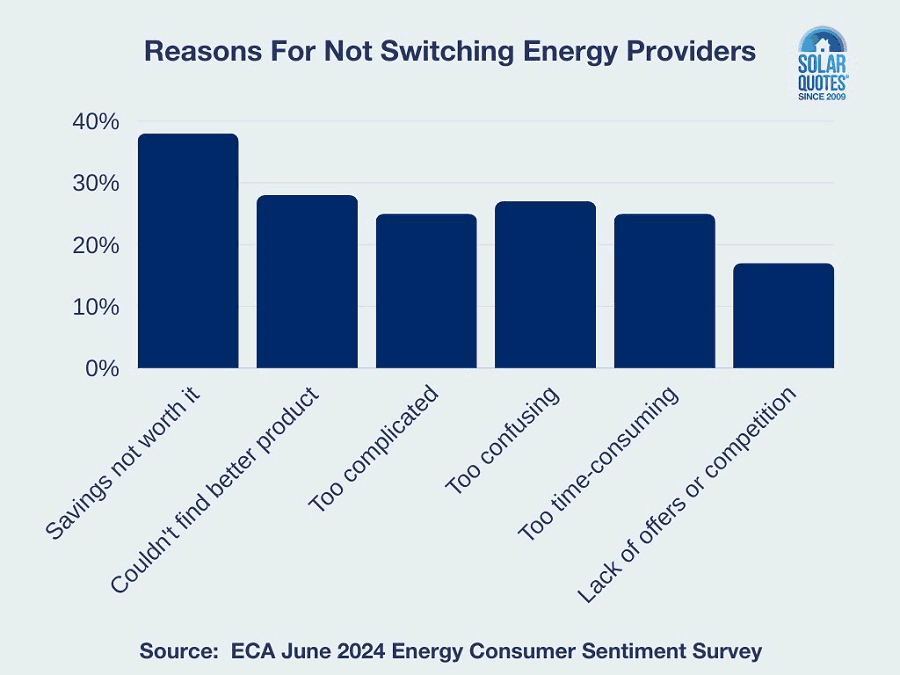
A recent survey indicates electricity and gas companies are trusted by fewer Australians than telcos, banks and supermarkets.
Energy Consumers Australia’s (ECA’s) latest Sentiment Survey canvassed more than 2,100 households and 500 small business owners across Australia.
55% of residential electricity and 59% of gas customers said their retailer provided good value for money, which represented decreases on June 2023. In terms of trust, only 43% of respondents trusted power companies to do the right thing by their customers and by Australia as a whole. Trust in gas companies was a little less at 42%.
It’s really not surprising given the antics of some retailers, such as unexpected changes to a household’s electricity tariffs after a smart meter is installed – including whacking some with demand tariffs. The behaviour has recently triggered the Australian Energy Market Commission (AEMC) to commit to carry out a broad electricity tariff pricing review.
There’s been a lot of attention focused on supermarkets and a related ACCC inquiry to examine their pricing practices. Energy Consumers Australia CEO Brendan French points out:
“If consumers rate energy services as worse value for money and energy companies as less trustworthy than supermarkets then that’s a clear sign the sector is failing consumers. We need better consumer protections and tighter enforcement of retailer behaviour.”
Switching Energy Retailers – Or Not?
With dissatisfaction so prevalent, are Australian households bothering to compare electricity plans and/or gas offers and taking further action in droves? Among survey respondents, in the past year:
- 9% changed their energy company.
- 10% switched to a better offer from their current energy company.
- 26% considered changing energy retailer or switching to a better offer with their current provider, but decided not to.
- 55% didn’t consider it, or didn’t bother investigating.
When consumers were asked to think back to the last time they considered an energy retailer switch (whenever that was) but ultimately didn’t, the reasons:
- 38% said the savings weren’t worth it.
- 28% couldn’t find a better product for their circumstances.
- 25% said it was too complicated.
- 27% said it was too confusing
- 25% indicated it was too time-consuming.
- 17% cited a lack of offers or competition.

Getting Real Support To Households Needing It Most
While the federal and some state governments are offering electricity rebates to help with the cost-of-living crisis, these are a band-aid solution if energy prices remain elevated.
Strategies such as installing a solar power system can knock a mighty dent in power bills, and the national solar panel rebate (along with incentives offered in some states) can take thousands off the up-front cost of a system. But there’s still an initial and significant outlay when buying outright. Many low- income households – and increasingly higher income households too – risk remaining trapped by high energy bills. Among these households are renters, who need special considerations as they are often at an even greater disadvantage.
The survey found that aside from the highest income bracket, more than half of households say they are either under financial pressure or managing to afford household bills but struggling to afford anything extra.
“It is therefore unlikely most are able to afford major energy upgrades such as energy efficiency improvements or Consumer Energy Resources,” states Energy Consumers Australia.
ECA wants to see Australians on low incomes and those under financial pressure provided with enough financial support to be able to access the savings to be had through energy efficiency upgrades and items such as solar power systems.
On a related note, there are various finance options for solar, but care needs to be taken. Approached wisely, a suitably-sized solar power system acquired this way can save more money every month than it costs to finance.
More topline results and commentary from the June 2024 Energy Consumer Sentiment Survey report can be accessed here.
- SEO Powered Content & PR Distribution. Get Amplified Today.
- PlatoData.Network Vertical Generative Ai. Empower Yourself. Access Here.
- PlatoAiStream. Web3 Intelligence. Knowledge Amplified. Access Here.
- PlatoESG. Carbon, CleanTech, Energy, Environment, Solar, Waste Management. Access Here.
- PlatoHealth. Biotech and Clinical Trials Intelligence. Access Here.
- Source: https://www.solarquotes.com.au/blog/australia-energy-trust-mb2944/
